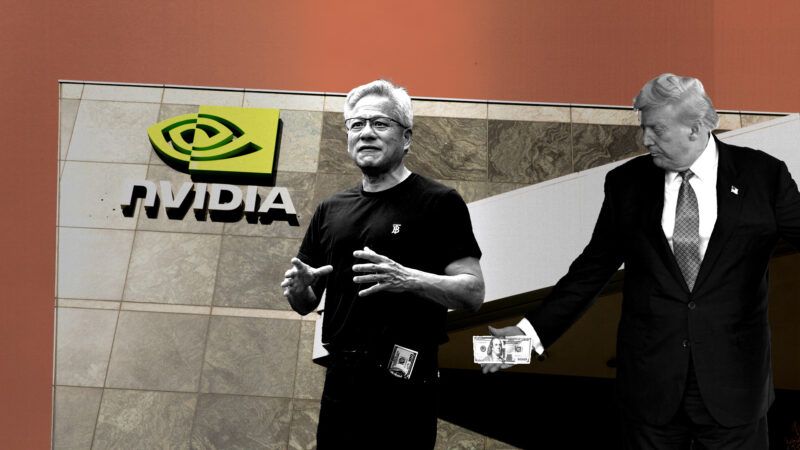U.S. Revenue Grab on Chip Exports Raises Legal, Economic Alarms
The Trump administration will allow Nvidia and AMD to sell chips in the Chinese market—in exchange for 15 percent of their revenue.

Nvidia, which makes up 92 percent of the global GPU market, and Advanced Micro Devices (AMD), which has the remaining 8 percent, have reached a deal with the Trump administration. They'll get export licenses for the sale of certain chips to China in exchange for 15 percent of the revenues generated by the sales, reports the Financial Times.
"No US company has ever agreed to pay a portion of their revenues to obtain export licences," the paper notes.
The deal comes on the heels of Nvidia CEO Jensen Huang's meeting with President Donald Trump last Wednesday regarding the export controls imposed by the Bureau of Industry and Security (BIS).
Those controls have barred the sale in China of the Nvidia H100 and the pared down Nvidia H20 since September 2022 and April 2025, respectively. Before the H20 export controls went into effect, Nvidia would have generated $23 billion in revenue from their sale in the Chinese market, according to the Financial Times. Despite the controls, China comprised 13 percent ($17 billion) of Nvidia's total sales and 24 percent ($6.2 billion) of AMD's total revenue in 2024. BIS will now issue export licenses allowing the sale of Nvidia's H20 and AMD's MI308.
Christopher Padilla, who served as undersecretary for international trade at the Commerce Department under President George W. Bush, told The Washington Post that these "controls are in place to protect national security" and described the deal as "dangerous." But American export controls on advanced semiconductors have not prevented China from developing its own AI models. DeepSeek developed its R1 reasoning model without access to Nvidia H100 chips, and that product was competitive with OpenAI's ChatGPT at the time of its January 2025 release.
The new agreement is not only unusual—it could be illegal, too. The Constitution states in no uncertain terms, "No Tax or Duty shall be laid on Articles exported from any State." Yet this is what the Trump administration is effectively doing by conditioning permission to export these products on the forfeiture of 15 percent of sales revenue. Padilla appears to agree, telling the Post that "this arrangement seems like bribery or blackmail, or both.''
Even if the deal brokered between the chipmakers and the federal government were legal, it would still be uneconomical. The revenue—hundreds of millions of dollars—will be directed to a Treasury Department slush fund that will allocate it arbitrarily. Nvidia and AMD have a stronger incentive, more information, and a better track record with investing dollars in a manner that yields a high return on investment.
U.S. export controls have not stopped China from developing AI, but they have denied American GPU firms access to much-needed revenue. Imposing this constitutionally dubious 15 percent tax is yet another example of unnecessary interference with the private sector.


Show Comments (35)